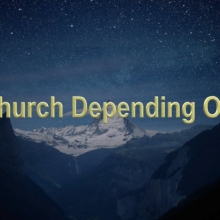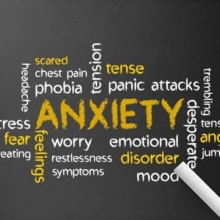Flashback Friday: Is Miso Healthy?
“Is Miso Healthy?” Salt is considered a probable
cause of stomach cancer, one of the world’s leading
cancer killers. If their estimate of an 8%
increase in risk of every extra gram of salt a day is correct, then
in a country like the UK nearly 1,700 cases of stomach
cancer happens every year just because of
excess salt intake, and in a country like the US, it would
be thousands more every year. The risk of stomach cancer
associated with salt intake appears on par with smoking
or heavy alcohol use, but may only be half
as bad as opium use or increased total
meat consumption, based on this study of more than a
half million people, which may explain why those eating meatless diets appear
to have nearly two-thirds lower risk. We know dietary salt intake is
directly associated with the risk of stomach cancer, and a higher
the intake, the higher the risk, but this meta-analysis went further,
looking at specific salt-rich foods: pickled foods, salted fish,
processed meat, and miso soup.
Habitual consumption of pickled foods,
salted fish, and processed meat were each associated with about a
25% greater risk of stomach cancer. The pickled foods
may explain why Korea appears to have the highest
stomach cancer rates in the world. However, there was no significant association
with the consumption of miso soup. This may be because the carcinogenic
effects of the salt are counteracted by the anti-carcinogenic effects of the soy,
effectively canceling out the risk. And if we made garlicky soup
with some scallions thrown in, it may drop our
cancer risk even lower. But cancer isn’t the primary reason
people are told to avoid salt. What about miso soup
and high blood pressure? Well, it may be the
same kind of thing. The salt in miso is squeezing
our blood pressure up, but the soy protein in miso may be
relaxing our blood pressure down. So for example, if you compare
the effects of soymilk to cow’s milk, and to make it fairer
compare soymilk to skim milk to avoid the saturated butter fat,
soymilk can much more dramatically improve blood pressure among
women with hypertension.

But would the effect be dramatic
enough to counter all the salt in miso? Japanese researchers decided
to put it to the test. They followed men and women
in their 60s who started with normal blood pressure and
followed them for four years to see who was more likely to be diagnosed
with hypertension at that time: those who had two or more
bowls of miso soup a day or those who had
one or less. Two bowls a day would be like adding
a half teaspoon of salt to one’s daily diet, yet those who ate two bowls
or more appeared to have a 5 times lower risk of
becoming hypertensive. So maybe the anti-hypertensive
effects of the soy in the miso exceed the hypertensive
effects of the salt.
𝗢𝗿𝗮𝗰𝗹𝗲 𝗼𝗳 𝗛𝗲𝗮𝘃𝗲𝗻𝘀 ᶦˢ ʸᵒᵘʳ ᵍᵘᵃʳᵈᶦᵃⁿ ᵃⁿᵍᵉˡ ᵗʳʸᶦⁿᵍ ᵗᵒ ˢᵉⁿᵈ ʸᵒᵘ ᵃⁿ ᵘʳᵍᵉⁿᵗ ᵐᵉˢˢᵃᵍᵉ? ɪꜰ ʏᴏᴜ ꜱᴇᴇᴋ ɢᴜɪᴅᴀɴᴄᴇ ᴀɴᴅ ɪɴꜱɪɢʜᴛꜱ ɪɴᴛᴏ ᴛʜᴇ ᴘᴀꜱᴛ, ᴘʀᴇꜱᴇɴᴛ, ᴀɴᴅ ꜰᴜᴛᴜʀᴇ ᴡɪᴛʜ qᴜᴇꜱᴛɪᴏɴꜱ ᴀʙᴏᴜᴛ ʟᴏᴠᴇ, ʀᴇʟᴀᴛɪᴏɴꜱʜɪᴘꜱ, ᴏʀ ᴍᴏɴᴇʏ – ᴄᴏɴɴᴇᴄᴛ ᴡɪᴛʜ ʏᴏᴜʀ ᴀɴɢᴇʟ ᴛᴏᴅᴀʏ https://aef5aa-t-ztics23v7-ljxbw4j.hop.clickbank.net/
















